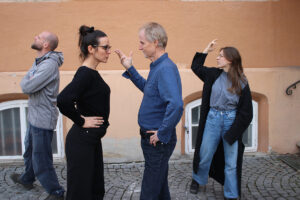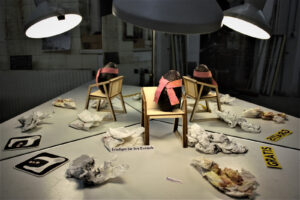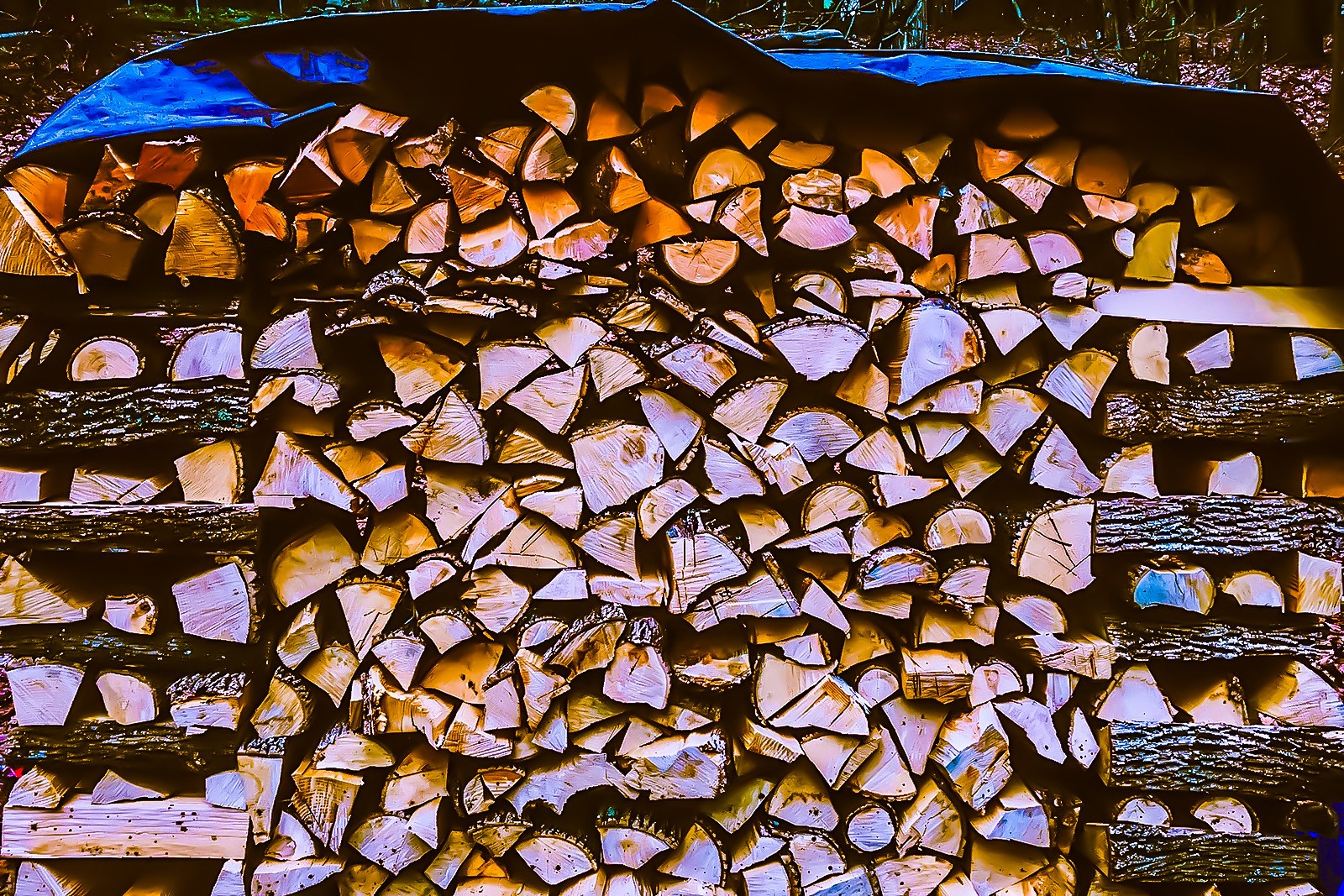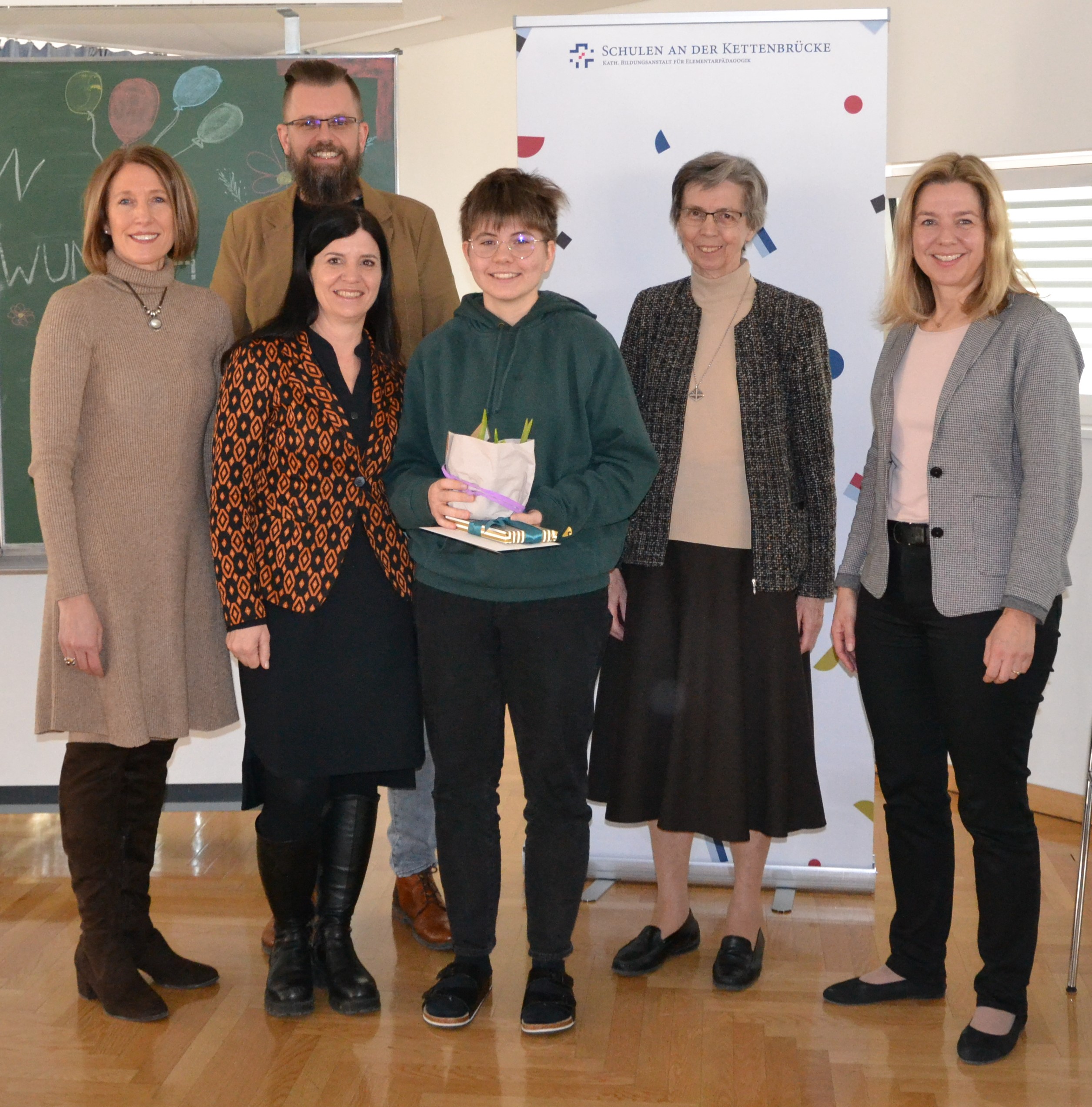Beim englischsprachigen Climate-Fiction-Contest 2022/23 gewann die 18-jährige Elea Fleißner mit ihrer Kurzgeschichte “The Blue Tarp” den 1. Preis. Gefragt waren Short Stories, die das Leben in Tirol im Jahr 2050 zum Inhalt haben und optimistische Visionen präsentieren, die uns zum Handeln inspirieren. Lest hier ihre Story.
The Blue Tarp
Im Rahmen des Anthologie-Projekts (Tirol) hat die Gründerin Leanne Mills, eine britisch-australische Berufsschriftstellerin, die in Hall in Tirol lebt, im September 2022 den Grundstein für den Climate Fiction Contest an Tiroler Schulen gelegt. In Kooperation mit klimakultur.tirol, dem Klimabündnis Tirol, den Tiroler Kulturinitiativen (TKI), Energie Tirol, KlimaFit sowie der Pädagogischen Hochschule Tirol und Professor*innen des MCI entstand ein gemeinsames Projekt, das Schüler*innen im Alter von 14 bis 18 Jahren die Möglichkeit gab, über ihre eigene Zukunft in Tirol nachzudenken, genauer gesagt sich vorzustellen, wie ihre optimistische Vision für das Leben in Tirol im Jahr 2050 aussehen könnte.
“Geschichten können beeinflussen, wie wir die Welt sehen und wie wir uns verhalten,” ist sich Leanne Mills sicher, “es macht also Sinn, dass Autor*innen durch ihre Geschichten Leser*innen dazu inspirieren, etwas zu verändern.” Bis zum 15. Dezember 2022 konnten die entstandenen Kurzgeschichten auf der Website von Tirol 2050 hochgeladen werden. Diese wurden anschließend von einem Redaktionsteam geprüft und von Expert*innen bewertet.
Als Partner*innen dieses Projektes freut es uns, die Gewinnerin und ihre Kurzgeschichte “The Blue Tarp” vorstellen bzw. veröffentlichen zu dürfen. Die 18-jährige Elea Fleißner ist Schülerin an der Katholischen Bildungsanstalt für Elementarpädagogik in Innsbruck und wurde mit einem Preisgeld von 500 Euro ausgezeichnet. Die Preisverleihung fand im Februar statt.
“Elea hat eine nostalgische Geschichte geschrieben, die einen Raum für ein Gespräch darüber eröffnet, was in der Vergangenheit geschah und was jetzt geschieht,” sagt die Initiatorin Leanne Mills. “Die Preisrichterjury und ich waren alle beeindruckt von Eleas Fähigkeit, eine so fesselnde Geschichte auf Englisch zu schreiben.” FH-Prof. Dr. Antje Bierwisch, MCI-Professorin und Expertin für “Futures Thinking”, fügt hinzu: „Die Autorin ermöglicht uns einen spannenden Blick auf ihre Generation. Mit ihrer Geschichte beleuchtet sie die Verantwortung, die wir als Gesellschaft im Umgang mit neuen Technologien und deren langfristig möglichen Folgewirkungen haben. Hierbei bringt die Autorin gleichermaßen ihre Hoffnungen, aber auch Befürchtungen zum Ausdruck. Diese sollten wir ernstnehmen und als Ansporn verstehen, gemeinsam Lösungen für eine gute, lebenswerte Zukunft unserer Kinder zu entwickeln.”
Wir gratulieren Elea Fleißner herzlich zum Gewinn!
Die Kurzgeschichte: “The Blue Tarp”
by Elea Fleißner
Winner Climate Fiction Contest (English) 2022
The lonely house rested on the steep side of the mountain. Surrounded by lavish green for one half of the year, hidden in the depths of snow for the other, it was known as a place of shelter to the people in the nearby villages. The wood the lonely house was made of, harvested years ago in the woodlands past the river, was a weathered grey and covered in moss. When there was wind, the lonely house seemed to only barely be held together by some invisible thread. The thread, if you asked the people who had visited the lonely house, came from the woman. The woman had been in the lonely house for as long as anyone could remember. Without her, the house would not be, as she would not be without the house.
Finn had been travelling along the old road to go down to the abandoned train tracks when he first saw the lonely house. The roof, half collapsed under the weight of a rock that had fallen down the hillside behind the house. The garden fence, slightly askew from too many windy fall days. The windows overlooking the river, kept meticulously clean. The old chestnut, standing tall and proud in the dwindling light. The plastic tarp, wrapped around the backdoor to fight off the impending cold. The plastic tarp.
He had not known what it was back then, for he had never seen such a thing before. It felt disruptive in a way he had never known. Its washed-out blue colour, the fraying edges. None of it felt like it belonged. Because it didn’t. It was an artefact of a world long gone, part of a life lived long ago. Finn stopped, went up the stone steps to the tarp, and touched it. When he pulled his hand back, his palm was covered in tiny pieces of blue plastic. Plastic. Still such a foreign concept to him. He knew what it was now, had learned after that day, crouched over his comdev in his room, with blue polyethylene still stuck to his fingers. Back then though, when he first saw it, he was clueless about what it was and where it had come from.
His hand speckled with blue, he carefully went back down the stairs. Forgetting all about the train tracks he had meant to go to, he ran back home, eyes firmly on the palm of his hand.
That night, as he slept and dreamt of worlds made of blue plastic tarp, winter came. Weather had always been a capricious force and the buildings the people lived in were made to protect them from it. So, they went about their days until the snow began to melt. They tended to their gardens, cleaned their spaces, taught their children, took care of their elders. They made music together, cooked, and celebrated birthdays. Inside days, as they were called in this particular building, were always a busy affair.
Finn spent his inside days restlessly researching the blue residue still left on his fingers. He had refused to wash his left hand ever since he had gotten home, much to the annoyance of everyone he lived with, and tried his best to keep as much of the plastic as possible. After spending an entire day reading through all the articles he could find on polyethylene, he went down to the hub. The hub was probably the best room in the entire building, and even after being allowed to go there on his own for almost a year, his excitement about it had not faded. Entering the hub still felt like entering a new world. The dimmable lighting he could control by speaking to it, the corner with the beanbags Erna liked to sit in and listen to music, the huge screen on the eastern wall the older children liked to use to study together, the warm blue colour of the walls. Best of all though were the desks. They had real desk chairs, the ones people in old movies always sat on, and were located furthest away from the door, half hidden behind shelves overflowing with knickknacks. On each of the three desks was a big black box. The boxes, as unassuming as they seemed, were what made the hub the hub. Finn ran over to the desks and climbed onto his favourite chair. Excitedly he put his comdev, a slim tablet the size of his head, on the black box, connecting it to the hub. By linking his personal comdev with the public hub, Finn gained access to all information open to the public. He spent the entire day researching life before the switch, trying to understand the way the world worked all those years ago. He himself was too young to have seen it, the traffic and smoke, the scattered buildings only few people lived in, the countryside filled with traces of humankind. Reconciling the world he lived in now with what it used to be was hard. Imagining a world that wasn’t structured through buildings filled with everything you needed in your day-to-day life, a world in which you didn’t have to stay inside for days on end felt nearly impossible. The idea of living like that was terrifying, yet interesting enough to intrigue Finn.
After spending his entire day reading articles, watching videos and looking at pictures from before the switch, Finn went back upstairs. His room was located at the far end of the building, with a window overlooking the great forest that spread along the foot of the mountain. Tired, Finn crawled into his bed.
It took days for the snow to melt enough for the building to open its doors again. By the time it happened, all plastic was gone from Finn’s hand and his head was filled with images from before the switch, private cars racing on highways, burning forests and landfills. In hopes of collecting more of the plastic, Finn immediately burst out of his room and ran out the door. He sprinted down the old road to the lonely house, nearly falling over his own feet. When the house came into view, Finn saw that the blue tarp was gone. He jumped up the steps to the backdoor where the tarp had been only days before, frantically trying to find it. He hopped in front of the windows, trying to catch a glimpse of the house’s insides, ran a loop around the house and crawled under the old chestnut, wishing to see the now so familiar blue of the plastic again. Demoralised, he sat down on the ground, eyes closed, his back against the door and let his head fall back.
After sitting there for what felt like hours, Finn heard a quiet meowing coming from his left. He opened his eyes and carefully turned towards the noise, trying not to startle the black cat he saw sitting on the fence. Gingerly, Finn extended his hand towards the cat, beckoning it closer. The cat tilted its head warily before jumping down the fence and slowly walking over to where Finn was sitting in front of the backdoor. Ignoring the boy, it jumped up the wall and onto the windowsill of the window next to the door and began to meow loudly. After several moments, Finn heard rustling inside the house. Picking up the sound of footsteps coming closer and closer, he scrambled to his feet. Seconds later, the door opened with a loud creak and Finn found himself in front of an ancient looking woman.
Petrified Finn stood and looked at her. The woman was hardly any taller than him and had a slightly bent back. Her grey hair was mostly tucked inside an orange scarf that was wrapped around her head, accentuating her pale blue eyes. The cat jumped down from the windowsill and weaved around the woman’s legs. She picked it up and settled it against her chest.
“I- I’m sorry”, Finn said. Trying to explain himself, he nearly stumbled over his words. “I’m really sorry, and I know I shouldn’t be here, but I was here days ago, and I saw something, and it was really cool, and now it’s gone, and I couldn’t find it, but I wanted to, and then – “ “Breathe, child”, the old woman said with a smile. “You’re not in trouble. I think I might even know what it is you’re talking about.”
She stepped to the side, beckoning Finn inside. He took a step forward, resisting the urge to start running, when he saw the blue plastic tarp folded over a chair in the back of the room, though it must have shown on his face, as the old woman chuckled quietly. “Go on, you can touch it.”
Not being able to hold himself back any longer, Finn rushed through what must have been the living room, sliding over the wooden floors towards the tarp. Carefully, he brushed his hands over the washed-out blue, relishing in the feeling of the plastic. The woman closed the door, then followed more slowly, sitting down on the plush sofa next to the chair. The cat jumped out of her hands and cuddled up on the sofa next to her. Without taking his hands off the tarp, Finn turned towards the woman.
“What is it?”, he asked. “It’s –“ The woman took a moment to think. “It was made to cover things, a little like a roof to carry with you. I think they stopped producing them over a decade ago. My father used them to cover our chopped wood so it would stay dry. This is the only one I have left, and even that one is ripped now, see?” She moved over to where Finn was standing and pointed at a long tear through the plastic. “That’s why I brought it inside.” Finn’s eyebrows were furrowed with how hard he was concentrating on what the woman was
saying. “What do you mean, chopped wood?”
“Back when I was younger, maybe a little older than you are now, we used to go to the forest to cut down trees. Back at home we would cut them into smaller pieces, dry them and then burn them to heat our houses. No one is allowed off the path in the forest anymore, especially not to cut down trees, and you use big pumps in the basements of your buildings for heating now.” The woman sat back down on the couch, watching Finn expectantly, who was still deep in thought. He looked down at his hands, finally speckled with blue again. “But why is it blue?” The woman began to laugh. “I have absolutely no idea. Maybe they liked the colour?” Unsatisfied with that answer, Finn crouched down to get a better look at the tarp. The pale blue glaze was cracked and partly missing, a white cloth visible beneath it. He knew he needed to go home, but he couldn’t leave the tarp again, especially if the woman wanted to throw it away.
Trying badly to find anything new on the tarp to ask about, he bent down close enough to touch it with his nose. He closed his eyes, breathed in deeply to catch as much of the synthetic smell as possible, and got up. He turned around and looked at the woman determinedly. “I’m going home.” Casting a look at Finn’s hands, clenched tightly into fists to keep the plastic on them, the woman got up and went over to him. She took the tarp off the chair and handed it to him. “I want you to have it. Now, go home and take care of it.” A big smile spread over Finn’s face. He gripped the tarp tightly and made for the door. After opening it, he turned around, ran back to the woman and squeezed her tightly. He sprinted out the door, shouting thanks over his shoulder, and kept grinning all the way home. That night, Finn went to sleep tucked in safely under thick covers, the blue plastic tarp clutched closely to his chest.



